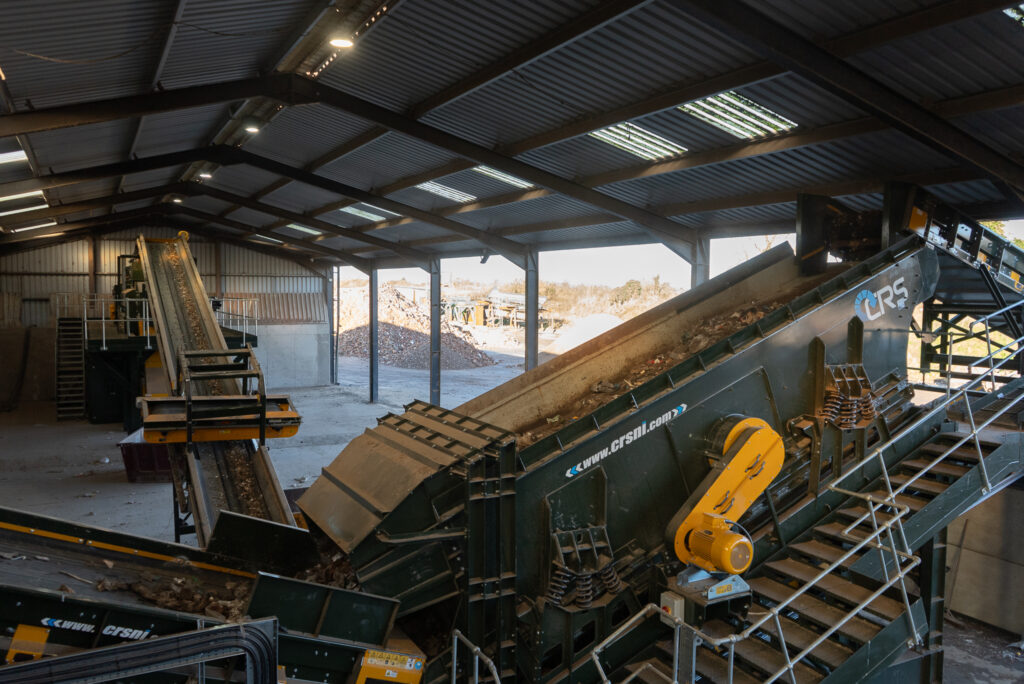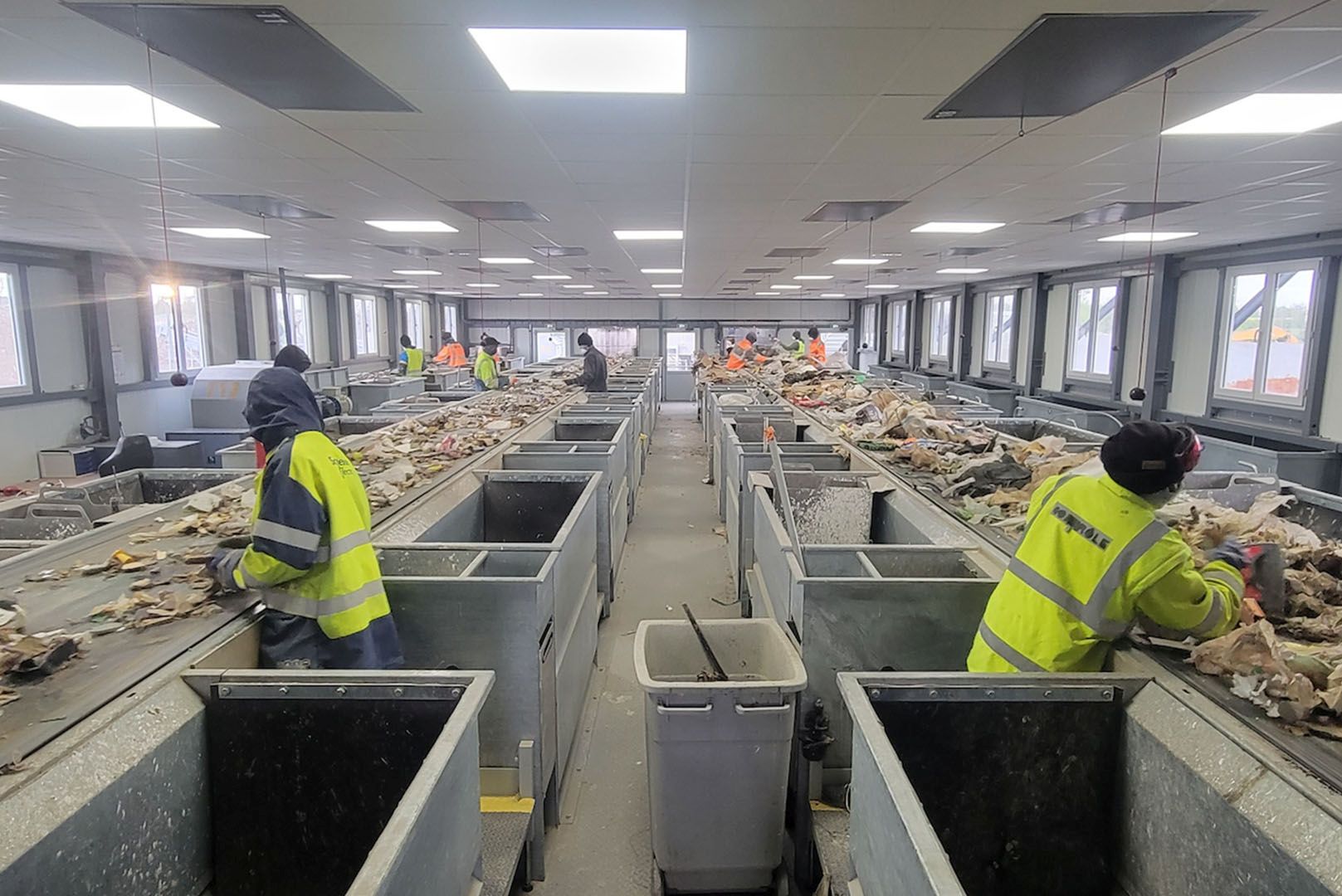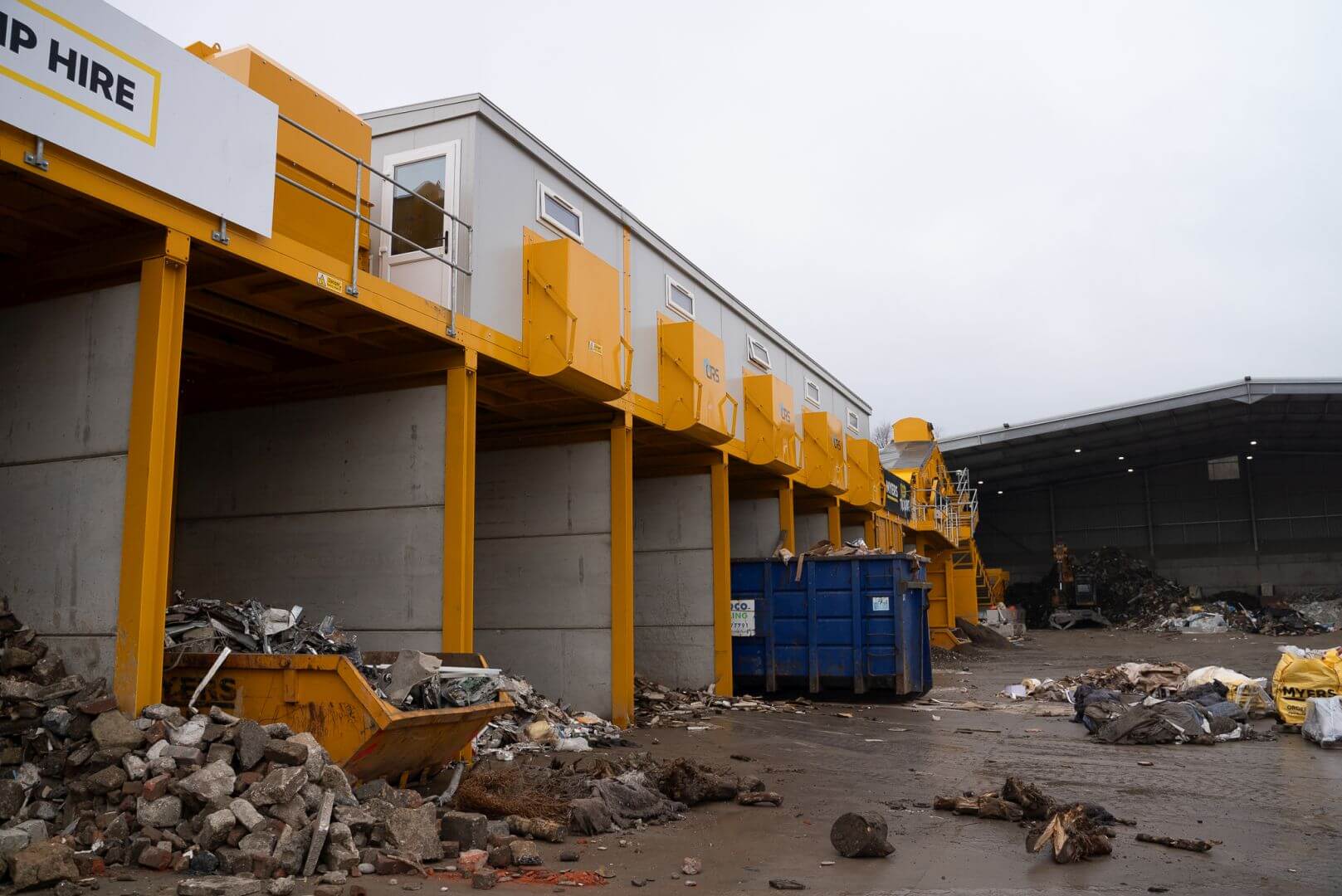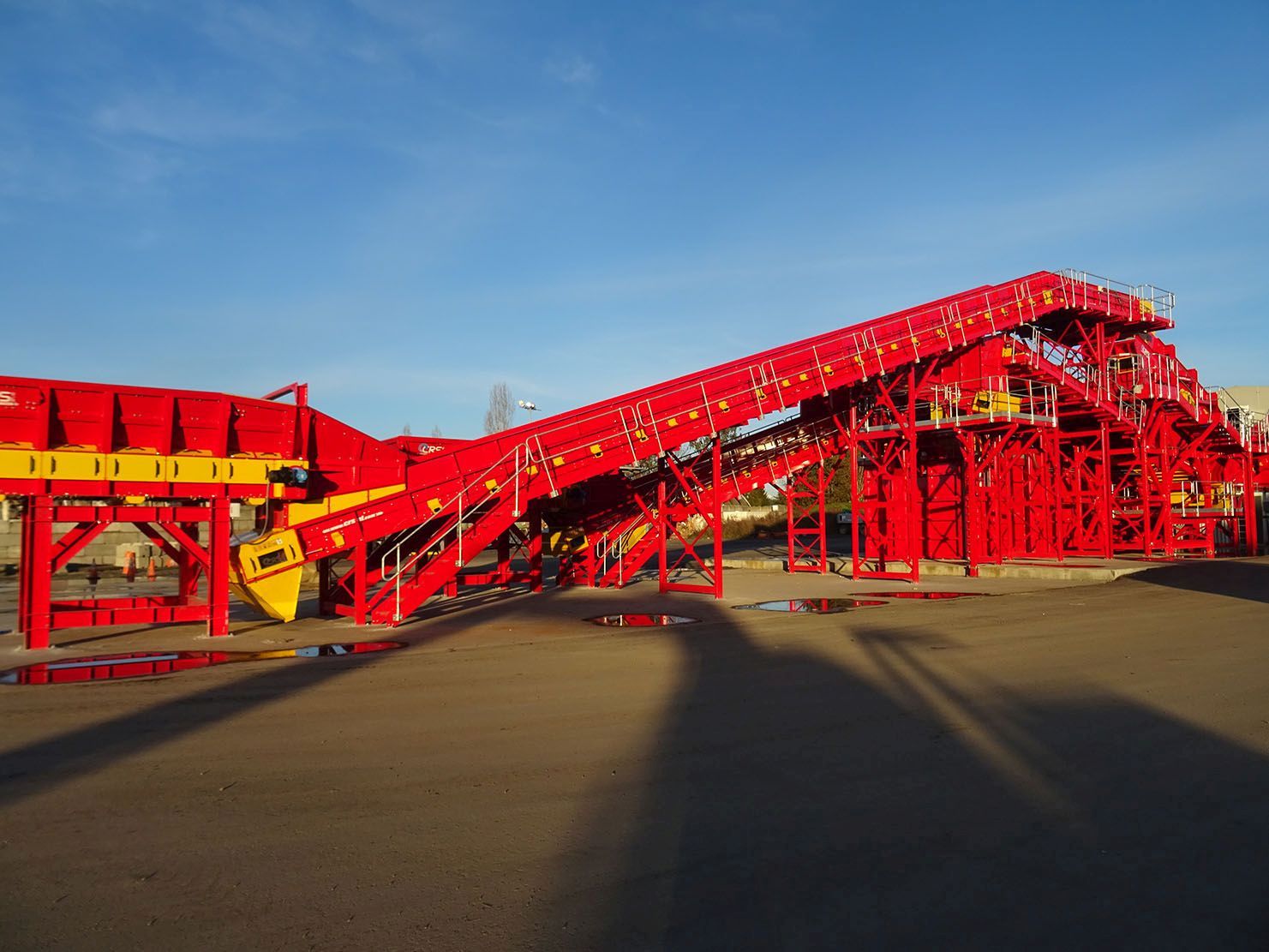The Role of AI and Robotics in the Future of Waste Management
The waste management industry is undergoing a technological revolution. With growing demand for efficient, sustainable recycling, AI-powered systems and robotics are transforming how facilities sort, process, and recover materials. At CRS NI, we are leading the way with integrated automated solutions that improve throughput, reduce contamination, and increase operational efficiency.

How AI is Revolutionising Waste Sorting
Traditional recycling operations rely heavily on manual picking, which can be slow, inconsistent, and costly. AI-powered optical sorters are changing the game by using advanced sensors and algorithms to identify and separate materials with unmatched accuracy.
Key benefits of AI in sorting include:
- Optical Recognition: AI-powered cameras scan materials, distinguishing plastics, metals, paper, and more with high precision.
- Reduced Contamination: AI algorithms can identify virtually any material and be programmed to pick specific items, ensuring cleaner, higher-quality output.
- Adaptive Learning: Machine learning continuously improves sorting performance as new waste streams or materials are introduced.
By integrating AI, recycling facilities can process larger volumes more quickly, recover more valuable materials, and minimise the amount of waste sent to landfill.
Robotics: Precision and Efficiency in Picking
In addition to AI, robotic pickers are being deployed in modern Materials Recovery Facilities (MRFs) to handle labor-intensive sorting tasks.
Advantages include:
- Speed & Accuracy: Robotic arms powered by AI can sort thousands of items per hour, consistently and efficiently.
- Operator Safety: Automated systems reduce human exposure to hazardous materials, creating safer work environments.
- Operational Savings: Fewer manual labour requirements reduce costs while improving productivity.
CRS NI integrates robotic systems alongside optical sorters, eddy currents, and magnets to create fully automated stations designed for mixed dry recyclables (MDR). For other waste streams such as C&D, AI or NIR optical sorters are recommended to achieve precise material separation.
Key Technologies Behind Automated Sorting
At CRS NI, our approach combines in-house plant design with specialist machinery sourced directly from original manufacturers, ensuring the highest quality and reliability. Core technologies include:
- Flip Flow Screens: Deliver efficient separation of fine, sticky, or wet materials to prepare waste for downstream sorting.
- Air Separators: Separate light and heavy fractions, improving the quality and purity of recovered materials.
- Trommel Screens: Provide primary screening for mixed waste streams, ensuring consistent feed to automated systems.
- Eddy Currents: Separate non-ferrous metals such as aluminum and copper.
- In-line or Overband Magnets: Extract ferrous metals efficiently from waste streams.
- Optical Sorters (NIR & AI): Identify materials for precise separation.
- Robotic Pickers: Handle complex or delicate sorting tasks in MDR facilities.
These systems can operate continuously, 24/7, delivering consistent performance while reducing human labour and operational costs.
Benefits of AI and Robotics in Waste Management
Integrating AI and robotics offers measurable improvements across multiple metrics:
- Efficiency: High-speed sorting of large volumes without fatigue.
- Accuracy: Reliable, repeatable separation results.
- Flexibility: Easily adjustable to handle new materials or changing waste streams.
- Safety: Reduced operator exposure to hazardous or sharp materials.
- Sustainability: Improved recycling rates and reduced landfill waste contribute to a circular economy.
The Future of Smart Waste Management
The next generation of waste management technology promises even more innovation:
- Fully Automated Recycling Plants: Minimal human intervention with maximum efficiency.
- AI-Driven Analytics: Data insights to optimise collection, predict contamination, and improve recycling rates.
- Adaptive Machine Learning: Sorting systems that automatically adjust to new packaging and material types.
At CRS NI, we are embracing these advancements to deliver intelligent, high-performance recycling systems that meet today’s needs and anticipate tomorrow’s challenges.
Why Choose CRS NI for Automated Waste Sorting
With over 15 years’ experience in designing and manufacturing industrial recycling equipment, CRS NI offers:
- Fully Integrated Systems: Combining in-house plant design with specialist AI and robotic technologies.
- Customisable Solutions: Configurations tailored to specific waste streams and operational goals.
- Durable Engineering: Equipment built for longevity and consistent performance.
- Expert Support: Guidance from concept to installation and ongoing maintenance.
By leveraging AI and robotics, CRS NI helps facilities increase throughput, reduce contamination, and operate more sustainably — transforming waste management into a smarter, safer, and more efficient industry.
Partner with CRS NI for the Future of Waste Sorting
As recycling demands grow, AI and robotics are no longer optional — they are essential. CRS NI’s automated solutions combine cutting-edge technology with proven engineering to deliver reliable, high-performance systems.
Get in touch today to discover how CRS NI can upgrade your recycling operation with AI-powered optical sorters, robotic pickers, and fully integrated automated sorting solutions.
Recent Posts

Automated Machinery vs. Manual Picking: What’s Right for Your Recycling Operation?
Every recycling plant faces the same pressure: improve recovery rates, reduce costs, and keep operators safe. But when it comes to sorting materials, is it better to invest in automated machinery — or stick with manual picking? Here’s a closer look at the key differences, and how to choose the right solution for your site.

5 Signs Your Waste Sorting System Is Holding You Back
If you're running a waste processing plant, your system is your business. But even solid setups can become bottlenecks over time. Whether you’re working with C&D, C&I, MDR, gypsum, or WEEE, here are five clear signs it’s time to consider an upgrade — and how CRS NI can help you get more out of every tonne.

Myers Group Enhances Waste Processing Efficiency with CRS NI
Myers Group sought to improve their waste processing capabilities with a customised waste sorting line that would not only increase efficiency but also enhance safety for their team. Turning to CRS NI Ltd., they collaborated to develop a tailored solution that met their exact needs while allowing for future expansion.

The Importance of Custom Waste Management Solutions
Every waste facility has a unique story to tell. The challenges you face, the materials you process, and the goals you aim to achieve are all distinct—and your waste management solution should be too. Yet, many facilities settle for standard equipment, missing out on the efficiencies and opportunities that only a tailored approach can deliver.

